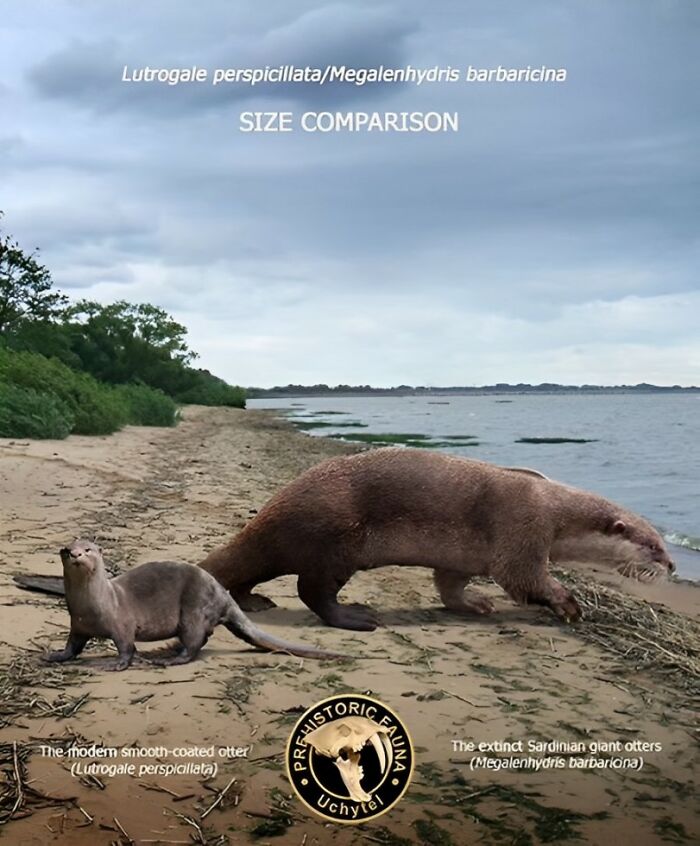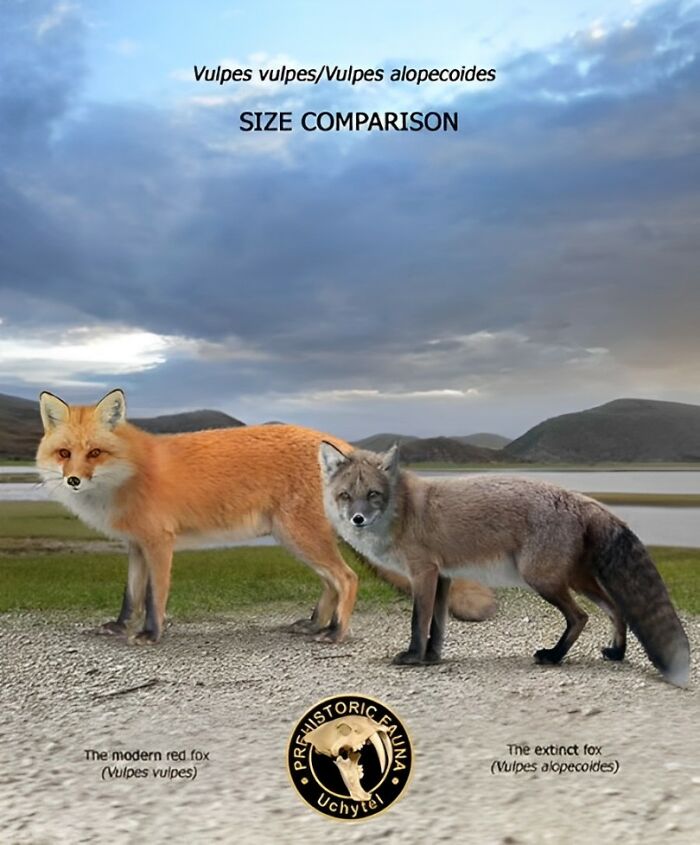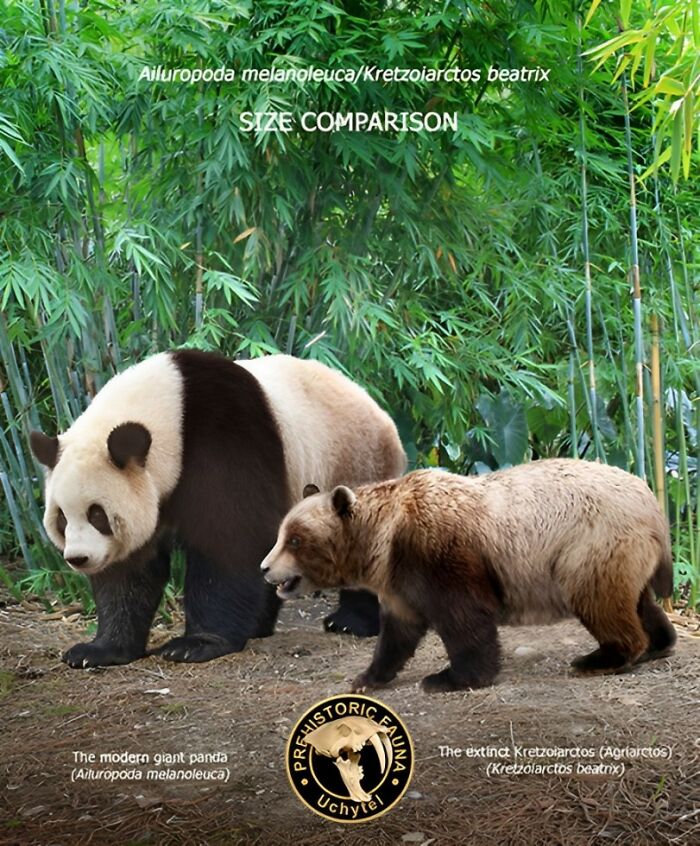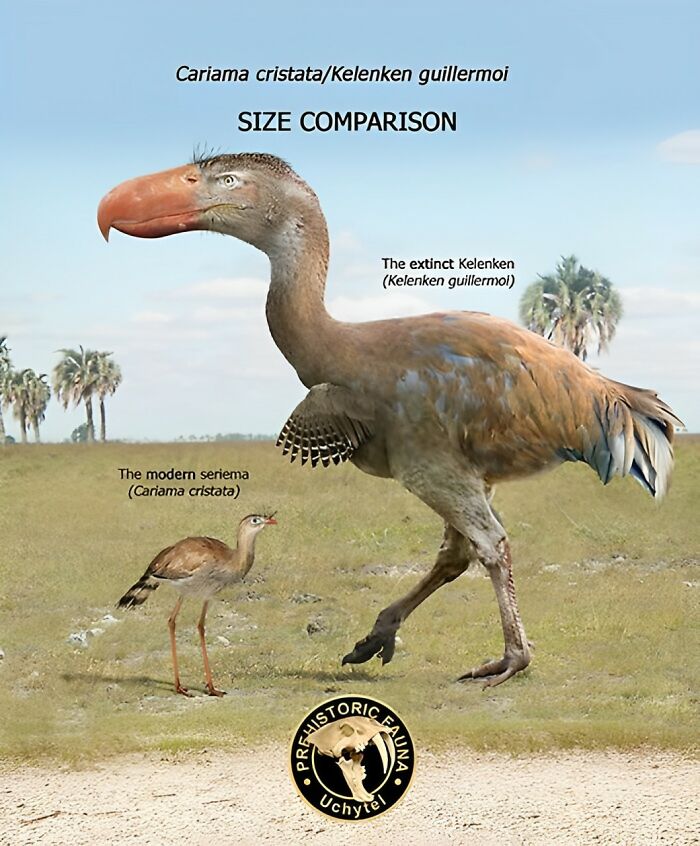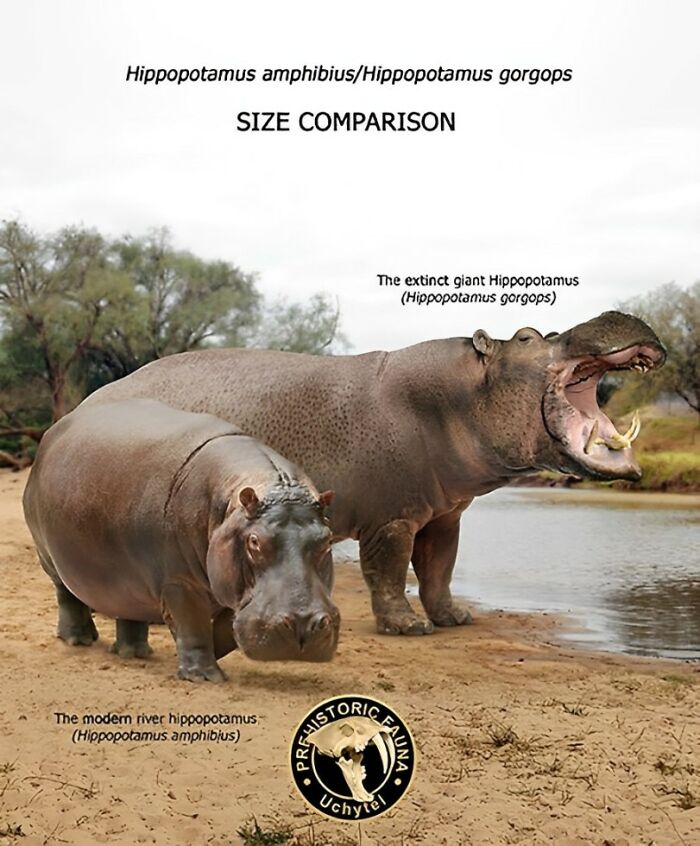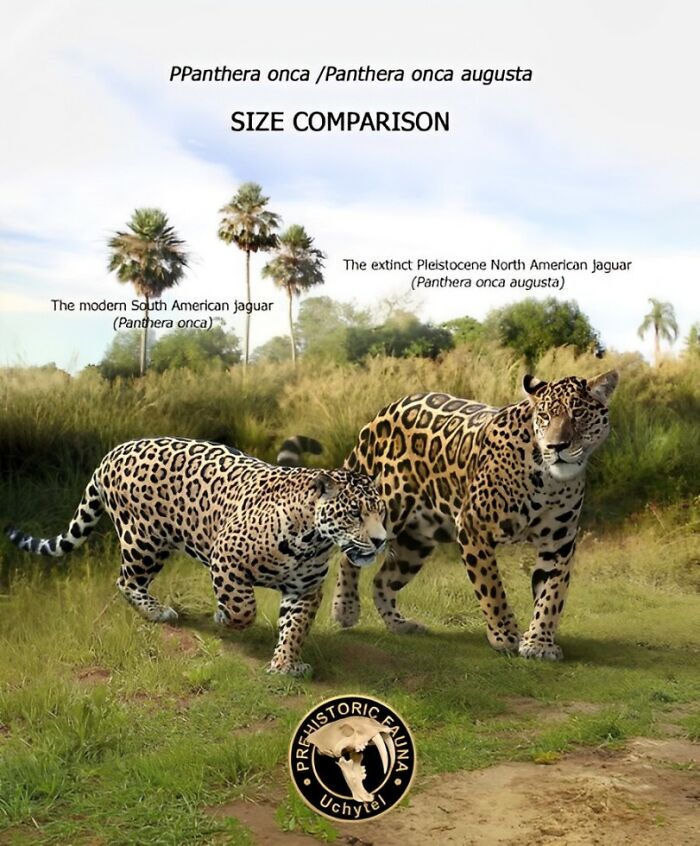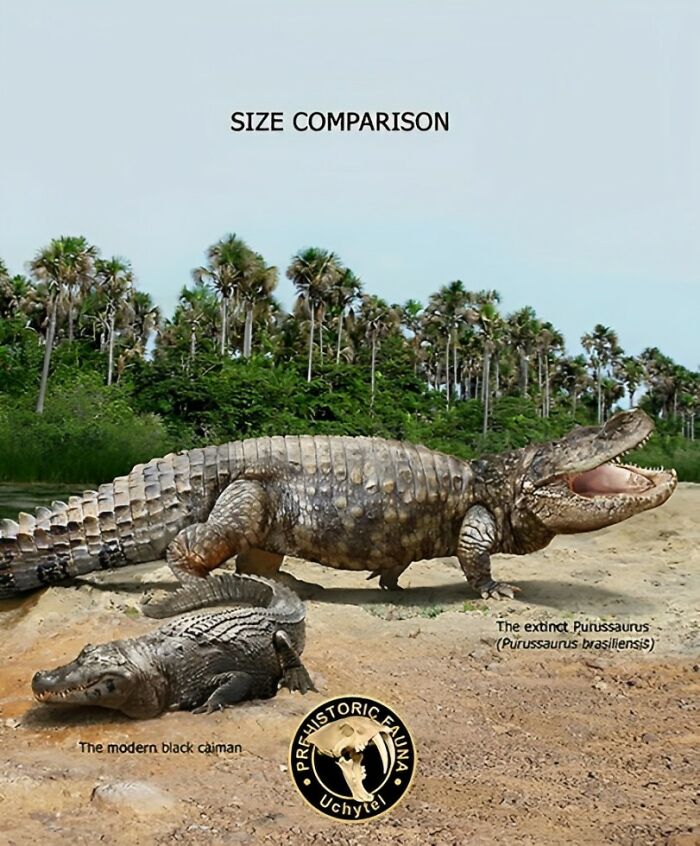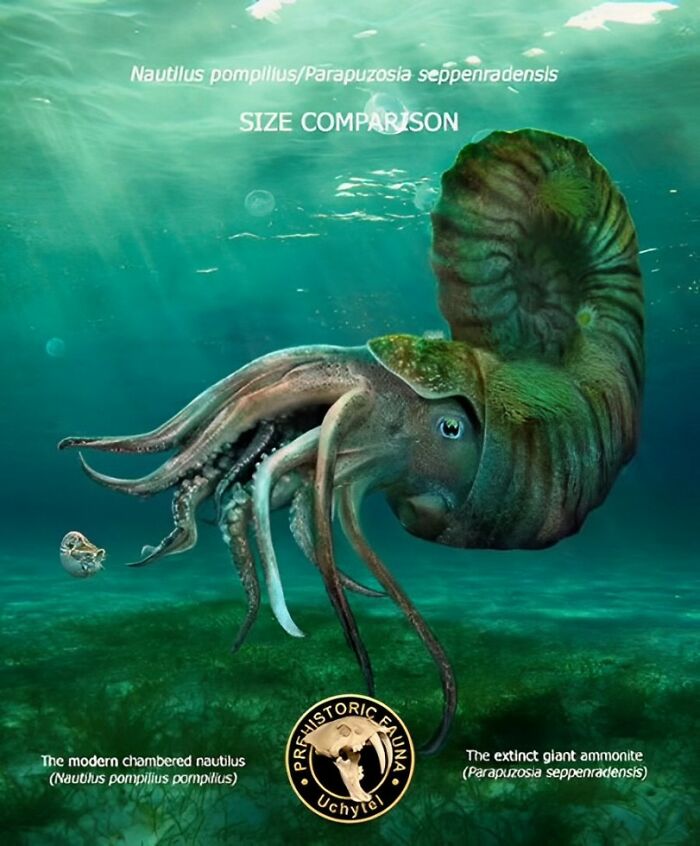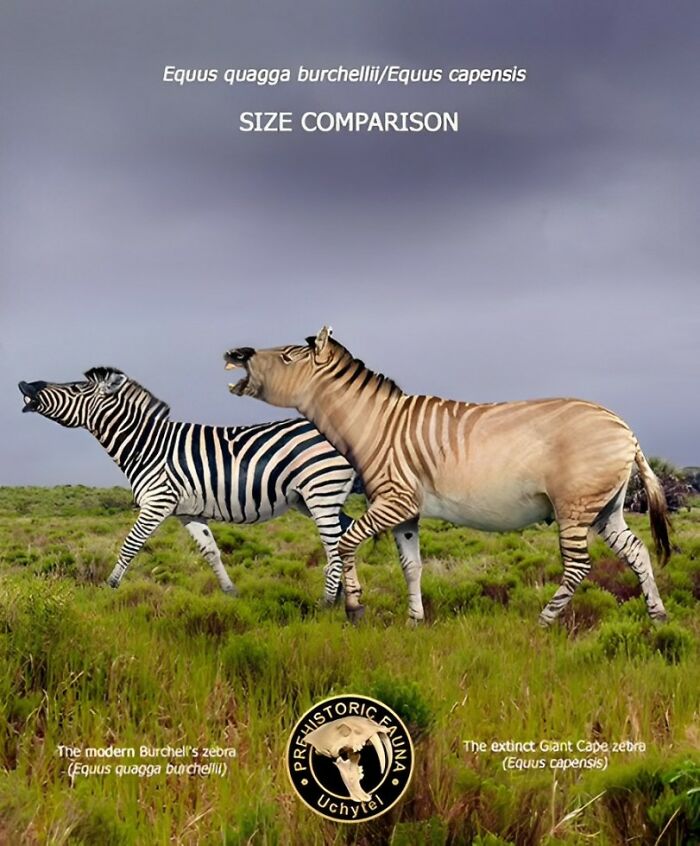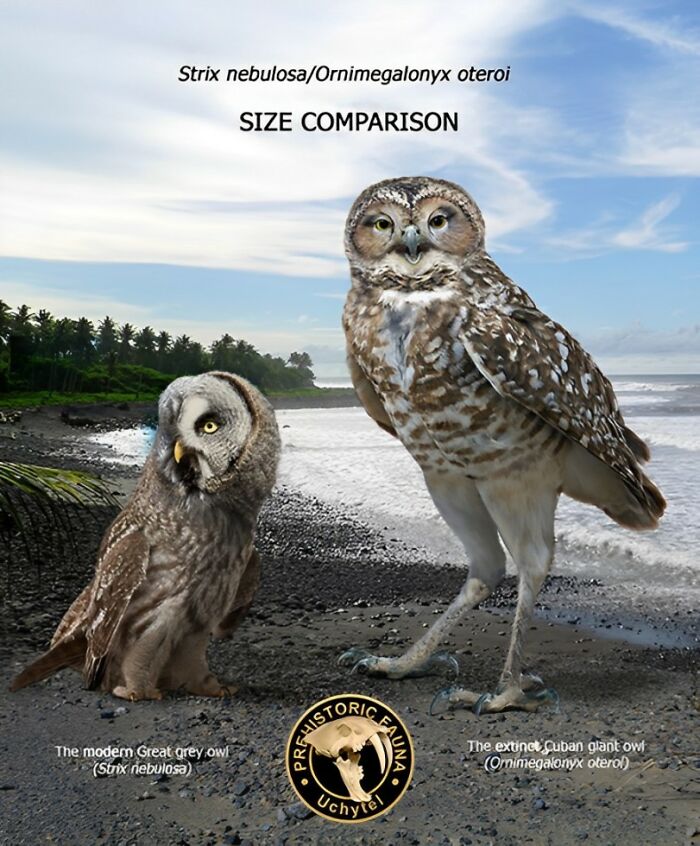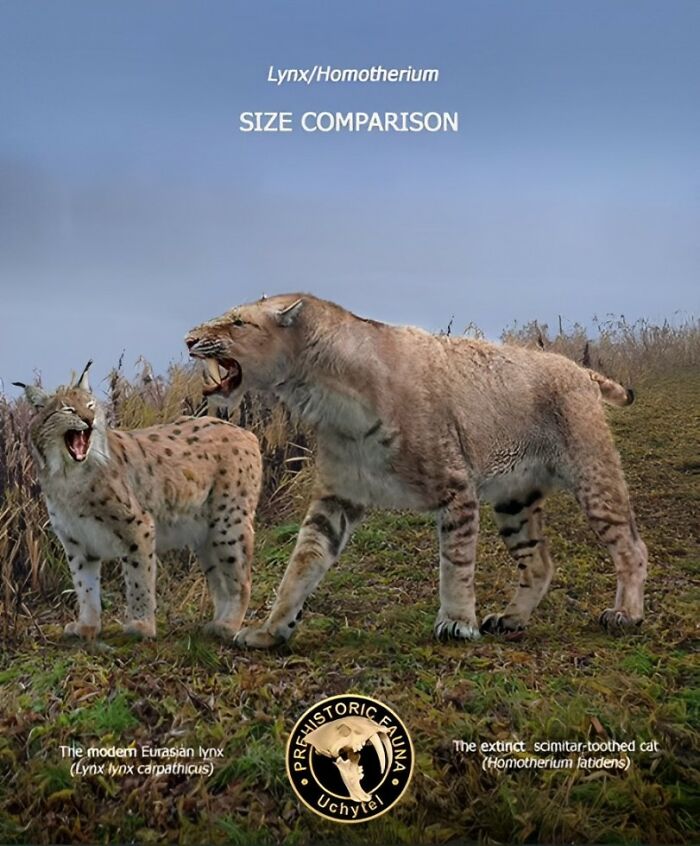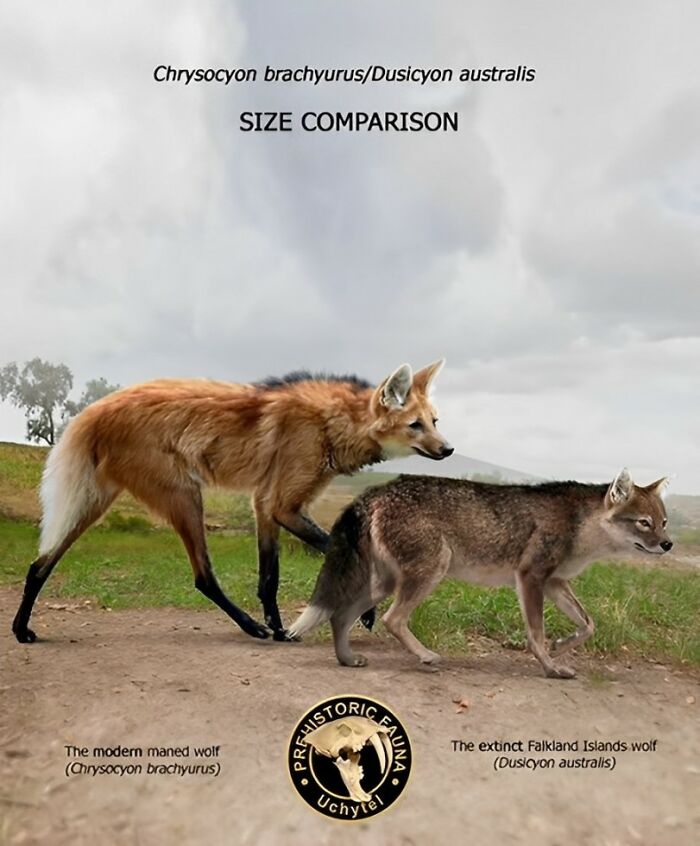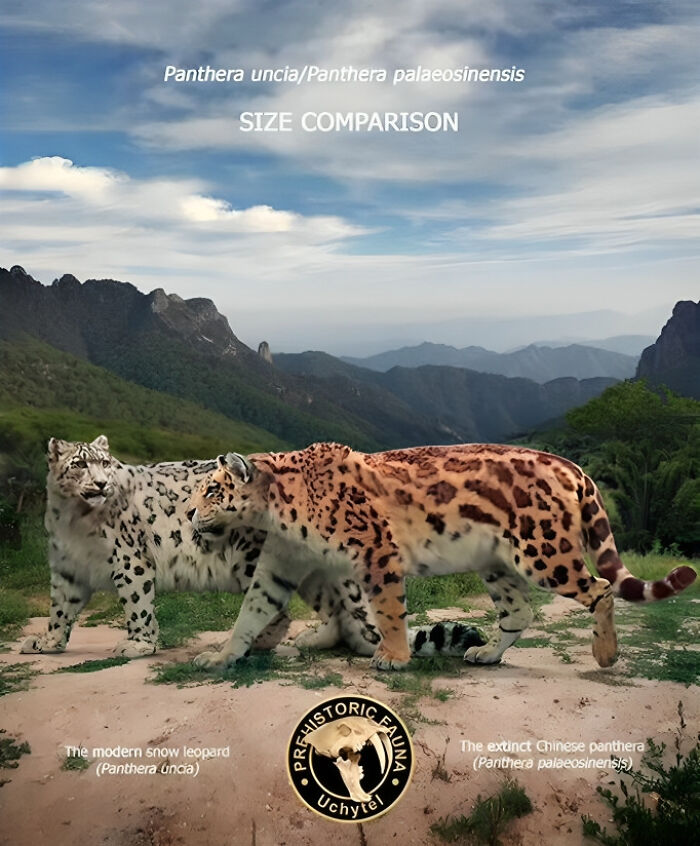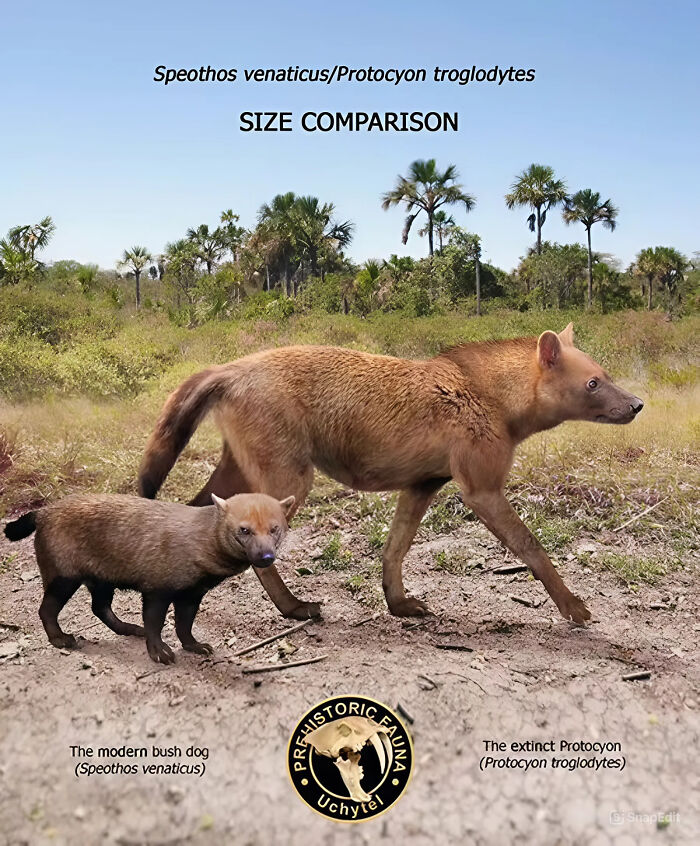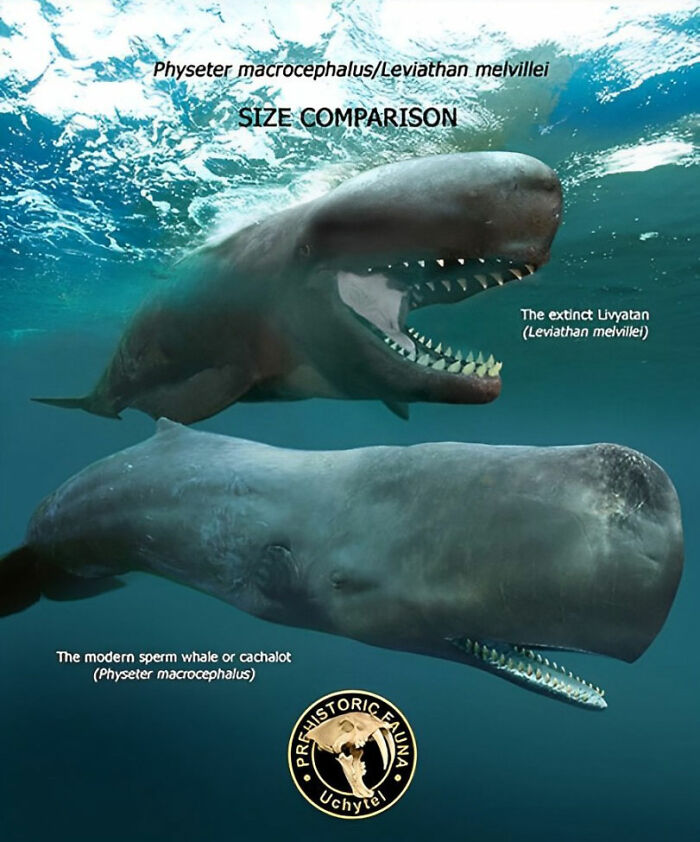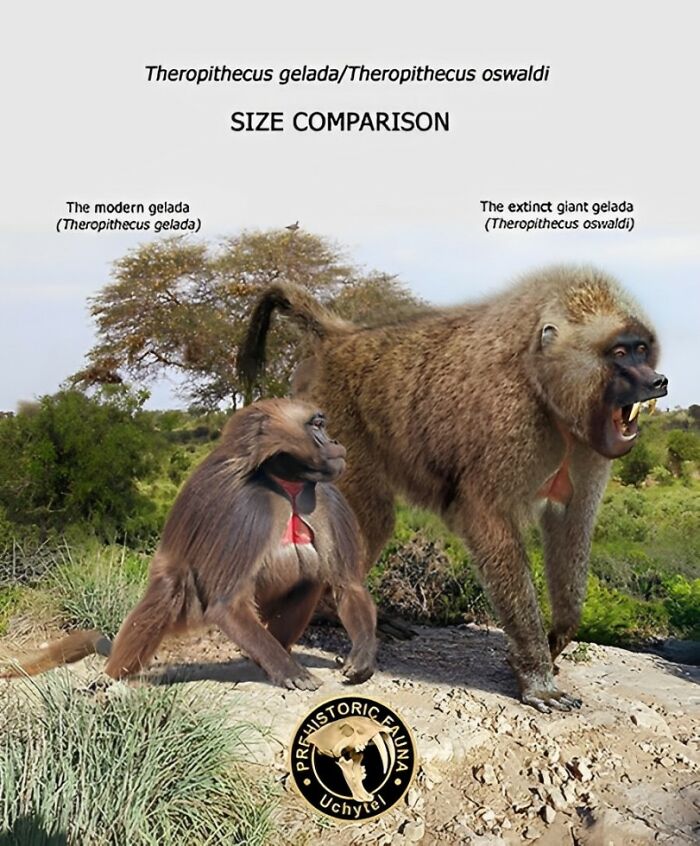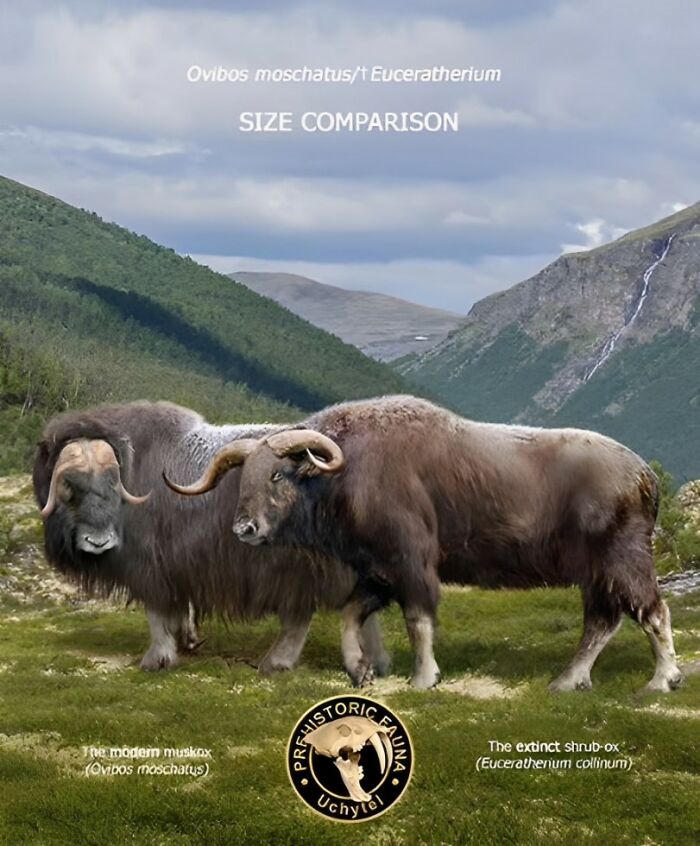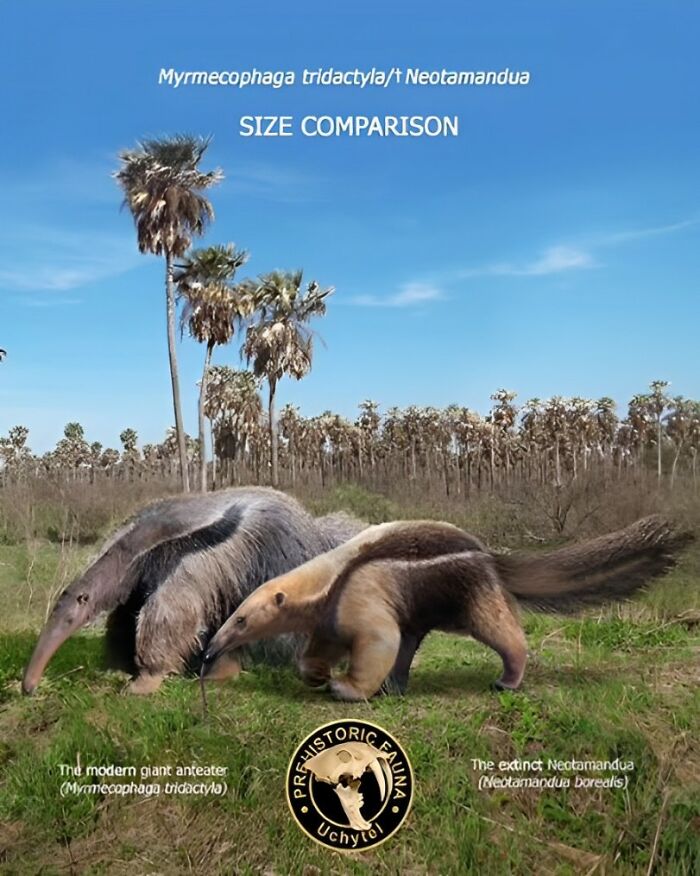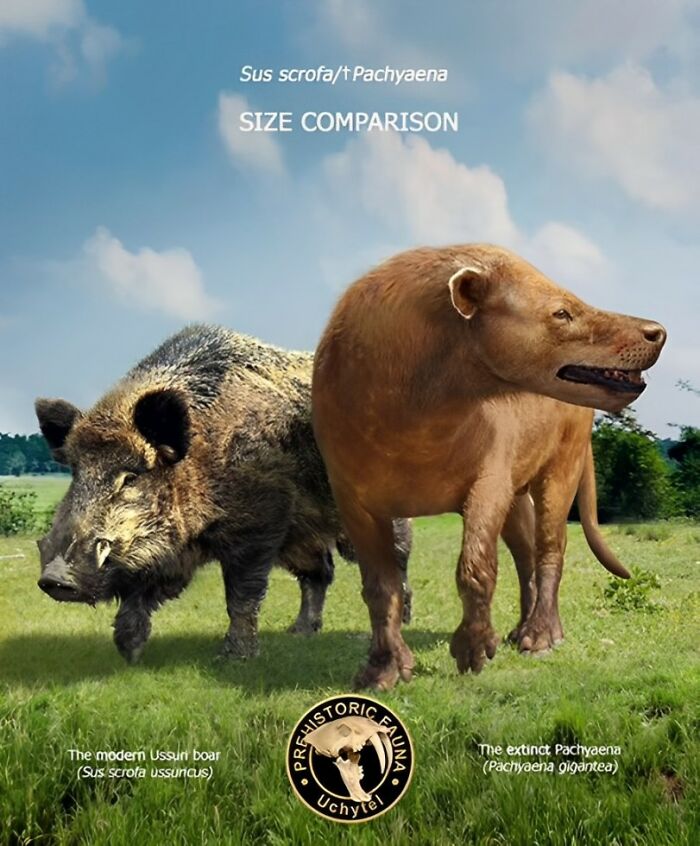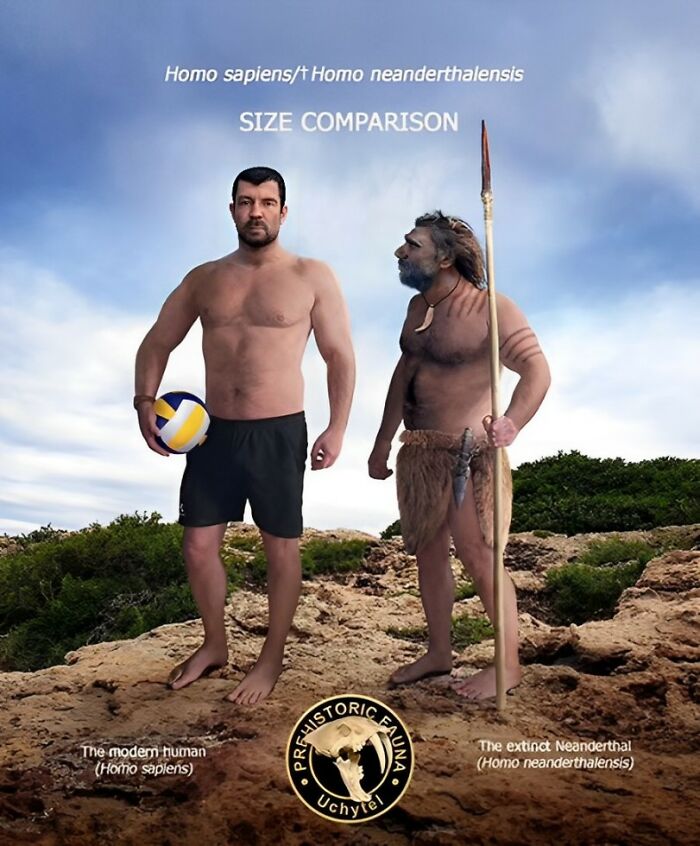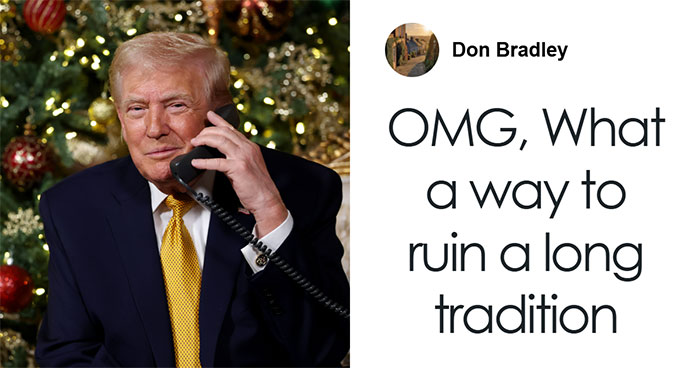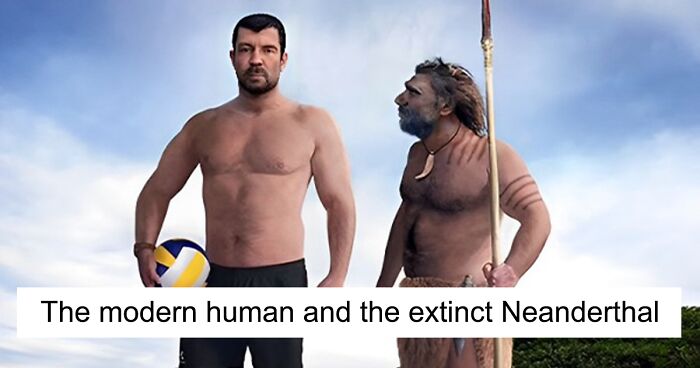
This Artist Compares The Sizes Of Extinct Species With Their Modern Relatives By Placing Them Side By Side (20 New Pics)
InterviewIt's time for a fascinating history lesson—prehistoric, to be exact! This journey into the past is made possible by Roman Uchytel, who dedicates his research to comparing extinct animals with their modern relatives. He brings these comparisons to life through detailed illustrations that highlight both the similarities and differences between them, focusing on size and overall appearance.
We've featured even more of Roman's comparisons in the past, so be sure to check out our previous posts. If you're curious to learn more about familiar species and see how they looked in the past, keep scrolling. The artist was kind enough to answer a few questions about his work, which you can read in our interview below.
More info: Instagram | uchytel.com | x.com | Facebook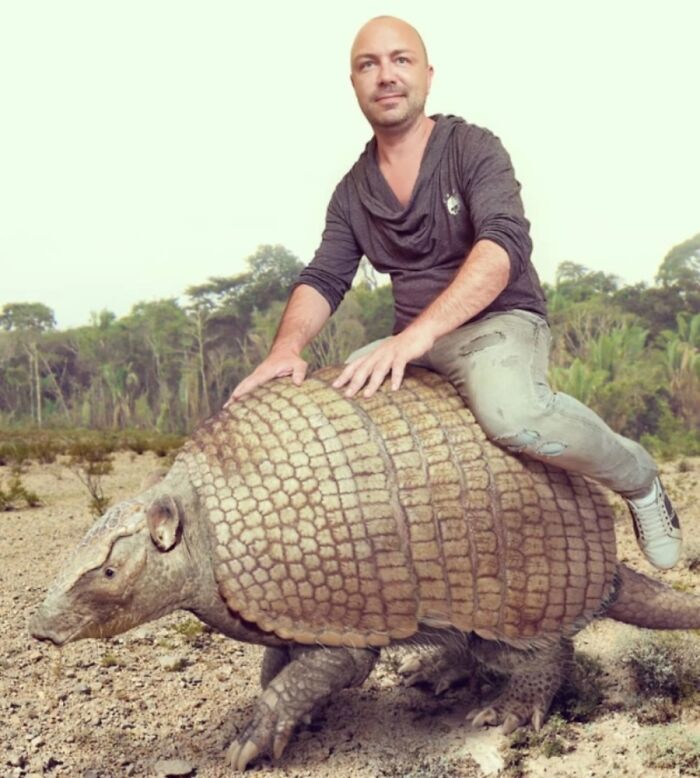 Image credits: romanuchytel
Image credits: romanuchytel
This post may include affiliate links.
The Modem Smooth-Coated Otter (Lutrogale Perspicillata) And The Extinct Sardinian Giant Otter (Megalenhydris Barbaricina)
We first asked Roman about the extinct animals he feels a strong emotional connection to, and without much hesitation, the history enthusiast mentioned the woolly rhinoceros. Then he told us more about it: “I don't have to spend too much time figuring out what he might look like because our ancestors created lifetime portraits of him in caves.
At the same time, if you rely on these images, you can understand that modern animals are not very different from some extinct animals, which helps in my work.”
The Modern Red Fox (Vulpes Vulpes) And The Extinct Fox (Vulpes Alopecoides)
The Modern Giant Panda (Ailuropoda Melanoleuca) And The Extinct Kretzoiarctos (Agriarctos) (Kretzoiarctos Beatrix)
All through my early education they repeatedly emphasized to us that the panda is not a bear, but it is some sort of giant raccoon. Then in the 1980s they changed their mind - "Nope, it was actually a bear this whole time! Sorry for the misunderstanding!" I felt so gaslighted.
Next, we wondered if Uchytel had ever been particularly surprised by something he learned during his research. It turns out that unexpected discoveries are a regular part of his work: “Every animal is a surprise. For example, it is still believed that the huge one-horned rhinoceros Elasmotherium had a giant horn on its forehead. But when I started to reconstruct it, there was evidence that if there was a horn, it was small - more like a bump on the forehead. In addition, one of Elasmotherium's skulls was found with damage to the spot that theoretically should have been protected by the giant horn. And this indirectly confirms that there was no giant horn.”
The Modern Seriema (Cariama Cristata) And The Extinct Kelenken (Kelenken Guillermoi)
I mourn the loss of earth's megafauna as I would have loved to see some of the amazing, large extinct animals. Terror Birds are the one exception, they were indiscriminate omnivores and I see how things like Shoebill Storks eat their prey. It probably would be a long drawn out death unless they kicked a hole through you first.
The Modern River Hippopotamus (Hippopotamus Amphibius) And The Extinct Giant Hippopotamus (Hippopotamus Gorgops)
When asked how his perception and portrayal of extinct animals have evolved over time, Roman answered: “Firstly, when I started doing digital palaeo-art, most artists were still drawing prehistoric animals with pencils and paints. As I created my archive, many scientific discoveries related to these animals came to light, necessitating changes or drastic reworking of already created reconstructions. And this process is never-ending. In addition, technology changes, allowing for more realistic images to be created. At the same time, I deliberately do not use AI.”
The Extinct Pleistocene North American Jaguar (Panthera Onca Augusta) And The Modern South American Jaguar (Panthera Onca)
The Modern Black Caiman (Melanosuchus Niger) And The Extinct Purussaurus (Purussaurus Brasiliensis)
The artist also shared his vision for his future work: “Now there is a noticeable increase in competition and I have a lot of successors. Even famous palaeo-artists started to make photorealistic illustrations. So you could say that my wife, who is a business partner, and I have given a boost to the industry as a whole. Fifteen years ago, not many people were interested in extinct Cenozoic fauna. And now it's become popular. Many people think that all modern reconstructions are created with the help of AI. But real nature is wild and ‘dirty’, and has nothing in common with an ideal picture created by a ‘robot’.”
The Modern Chambered Nautilus (Nautilus Pompilius Pompilius) And The Extinct Giant Ammonite (Parapuzosia Seppenradensis)
The Modern Burchell's Zebra (Equus Quagga Burchellii) And The Extinct Giant Cape Zebra (Equus Capensis)
Lastly, we were curious about what dream project related to extinct animals Uchytel would like to undertake if he had unlimited resources. We learned that: “We have long been thinking about creating a virtual Prehistoric Zoo, where sabre-toothed cats, giant sloths, big-horned deer and any other extinct megafauna from different continents and eras could walk alongside visitors.”
The Modern Great Grey Owl (Strix Nebulosa) And The Extinct Cuban Giant Owl (Ornimegalonyx Oteroi)
The Modern Eurasian Lynx (Lynx Lynx Carpathicus) And The Extinct Scimitar-Toothed Cat (Homotherium Latidens)
The Modern Maned Wolf (Chrysocyon Brachyurus) And The Extinct Falkland Islands Wolf (Dusicyon Australis)
The Modern Snow Leopard (Panthera Uncia) And The Extinct Chinese Panthera (Panthera Palaeosinensis)
The Modern Bush Dog (Speothos Venaticus) And The Extinct Protocyon (Protocyon Troglodytes)
The Extinct Livyatan (Leviathan Melvillei) And The Modern Sperm Whale Or Cachalot (Physeter Macrocephalus)
The Modern Gelada (Theropithecus Gelada) And The Extinct Giant Gelada (Theropithecus Oswaldi)
The Modern Muskox (Ovibos Moschatus) And The Extinct Shrub-Ox (Euceratherium Collinum)
I just love how MuskOxen have horns that look just like old-school Lego women's hair! 😸
The Modern Giant Anteater (Myrmecophaga Tridactyla) And The Extinct Neotamandua (Neotamandua Borealis)
The Modern Ussuri Boar (Sus Scrofa Ussuricus) And The Extinct Pachyaena (Pachyaena Gigantea)
The Modern Human (Homo Sapiens) And The Extinct Neanderthal (Homo Neanderthalensis)
Neanderthals are not extinct. Many of them mated with modern humans, so their genes are still part of us.

 Dark Mode
Dark Mode 

 No fees, cancel anytime
No fees, cancel anytime 






